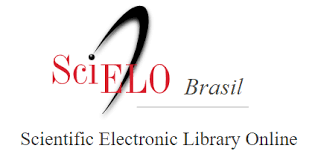Popular housing condominiums: the Zilda Arns residential case in the municipality of de Santa Maria/RS
DOI:
https://doi.org/10.22481/rg.v2i2.3907Keywords:
Urban. Popular housing. Social development.Abstract
The imbolistic speculation in the great cities and metropolises is the cause of the opulational densification, in addition to numerous other problems, both structurally and socially. One of the most frequent is the appropriation of places unsuitable for housing, usually by the low-income population. Based on this, it is noticed that often the occupied areas need to be expropriated due to the existence of risks for this population, as well as being public and / or private areas, triggering the reintegration of possession. In this way, government representatives are seeking, through the implementation of housing policies, to remove this population from those locations that are considered inappropriate. Based on this, the present work has as general objective, the analysis of the popular housing condominium Residencial Zilda Arns, located in the municipality of Santa Maria / RS / Brazil to understand the performance of government policies towards the basic needs of its low income population.
Keywords: Urban. Popular housing. Social development.
Downloads
References
HARVEY, D. The right to the city. New left review, London, v. 53, p. 23-40, 2008.
INSTITUTO BRASILEIRO DE GEOGRAFIA E ESTATÍSTICA (IBGE). Disponível em: <http://www.ibge.gov.br/home/>. Acesso em: 5 out. 2017.
IBGE. Sinopse do Censo Demográfico 2010, Rio Grande do Sul. Disponível em: <www.censo2010.ibge.gov.br/sinopse/index.php?dados=21&uf=43>. Acesso em: 5 out. 2017.
LEFEBVRE, H. Espacio y Política: el derecho a la ciudad II. São Paulo: Editora Centauro, 5ª edicação (texto original de 1968).
MARCUSE, P. From critical urban theory to the right to the city. CITY, v. 13, n. 2-3, jun-sep 2009.
MINISTÉRIO DAS CIDADES (Brasil). Secretaria Nacional de Habitação. Déficit habitacional municipal no Brasil 2010. Belo Horizonte. Nov. 2013. Disponível em: < http://www.fjp.mg.gov.br/index.php/docman/cei/deficit-habitacional/216-deficit-habitacional-municipal-no-brasil-2010/file>. Acesso em: 16 set. 2017.
Prefeitura Municipal de Santa Maria – Escritório da Cidade. Disponível em: <http://www.escritoriodacidade.net.br>. Acesso em: 21 set. 2017.
Prefeitura Municipal de Santa Maria – Secretaria de Município de Desenvolvimento Social. Disponível em: <https://www.santamaria.rs.gov.br/seção/processo seletivo>. Acesso em: 21 set. 2017.
RODRIGUES, A. M. Moradia nas cidades brasileiras. 7 ed. São Paulo: Contexto, 1997. (Coleção repensando a geografia)
SANTOS, C. N. F. V. Novidades nos modos de Urbanização Brasileiros. In VALADARES, L. do P. Habitação em questão. 2 ed. Rio de Janeiro: Zahar editores, 1981. 196p.
SUBSECRETARIA DE ESTADO DA ORDEM PÚBLICA E SOCIAL DO DISTRITO FEDERAL. Área de Risco. Brasília, 2017. Disponível em: <http://www.seops.df.gov.br/frentes-de-fiscalizacao/2012-08-21-17-01-06/area-de-risco.html>. Acesso em 30 set 2017.
Downloads
Published
Issue
Section
License
Copyright (c) 2020 Geopauta

This work is licensed under a Creative Commons Attribution 4.0 International License.
Dos Direitos Autorais
Os autores mantêm os direitos autorais de forma irrestrita e concedem à Geopauta a primeira publicação com o trabalho simultaneamente licenciado em CC BY, que permite que outros compartilhem com reconhecimento da autoria de cada autor na publicação inicial nesta revista.
Propriedade Intelectual e Termos de uso
A Geopauta adota a política de Acesso Livre em Conformidade com o Acesso Aberto- OAC recomendado pelo DOAJ e em conformidade com os Critérios SciELO, sob uma licença Creative Commons CC By Attribution 4.0 International License, permitindo acesso gratuito imediato ao trabalho e permitindo que qualquer usuário leia, baixe, copie, distribua, imprima, pesquise ou vincule aos textos completos dos artigos, rastreie-os para indexação, passe-os como dados para software ou use-os para qualquer outra finalidade legal.
A Geopauta atribui a licença CC BY. onde é permitido sem restrições:
Compartilhar — copiar e redistribuir o material em qualquer suporte ou formato para qualquer fim, mesmo que comercial. desde que lhe atribuam o devido crédito pela criação original.
Adaptar — remixar, transformar, e criar a partir do material para qualquer fim, mesmo que comercial desde que lhe atribuam o devido crédito pela criação original.














